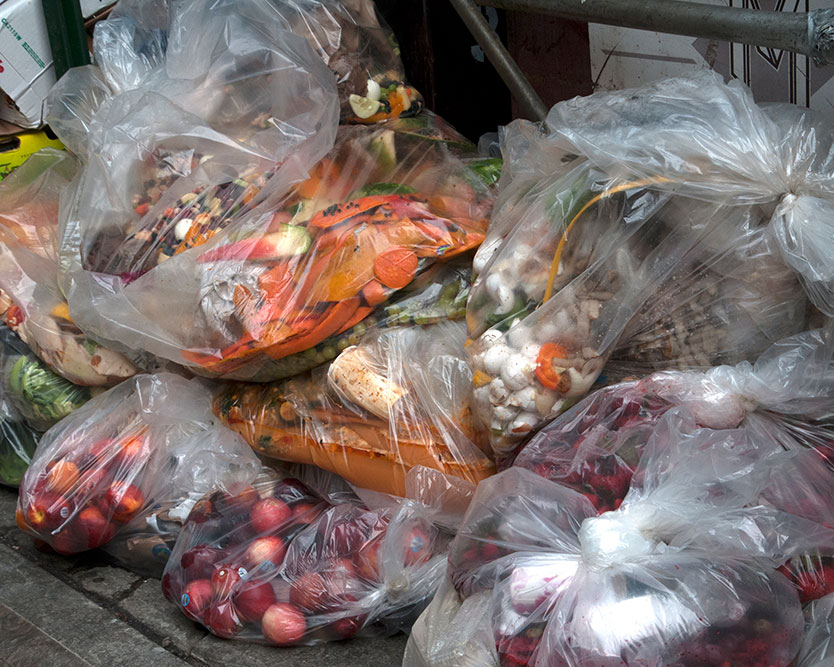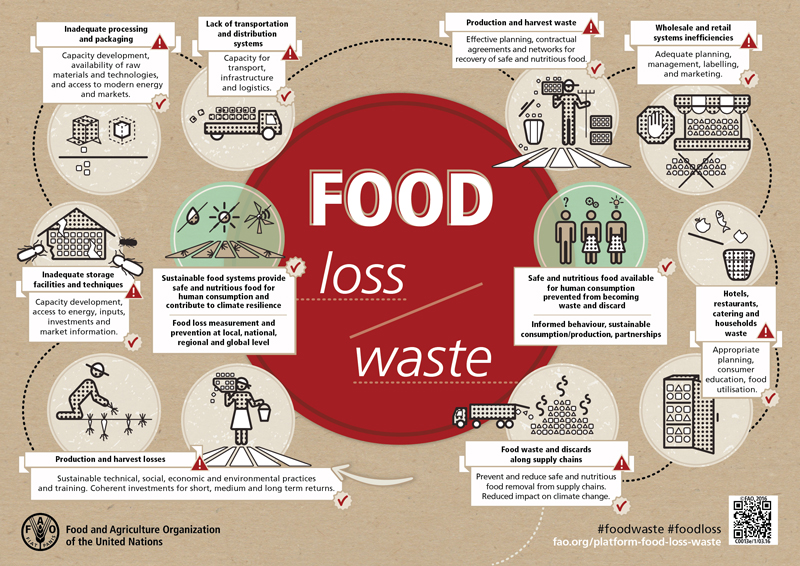
Tackling Food Loss & Waste (FLW)
Around a third of all food produced for human consumption is lost or wasted from the farm to the fork. This huge level of inefficiency has economic, social, and environmental impacts. Reducing food loss and waste (FLW) is essential to improve food security and nutrition, as well as to reduce the environmental footprint of food systems, goals shared with the Zero Hunger Challenge and the 2030 Agenda for Sustainable Development.
From farm gate to food service, our team has had experience with minimizing food losses. The food service sector contributes to minimizing FLW in a variety of ways, including increased investment in innovative or improved products with longer shelf-life or which make use of ‘waste’ products; consumer education, consumer programs, and consumer policies. Better understanding the issue through improved data collection is an essential first step so that solutions can be targeted at specific problems and tailored to local conditions.
Similarly, it is fundamental that solutions incorporate all actors. Emerging Ag emphasizes opportunities to contribute to solving FLW problems. By supporting the development of multi-stakeholder initiatives, promoting partnerships, and making full use of international platforms.
Most recently, Emerging Ag hosted an high-level dialogue in the margins of the plenary session of the United Nations Committee of Food Security (CFS). During the evening, 190 Ambassadors, country representatives, NGO representatives, UN agency employees, and private sector delegation members discussed means to reduce food losses and waste in both developed and developing countries to achieve SDG 12.3.

